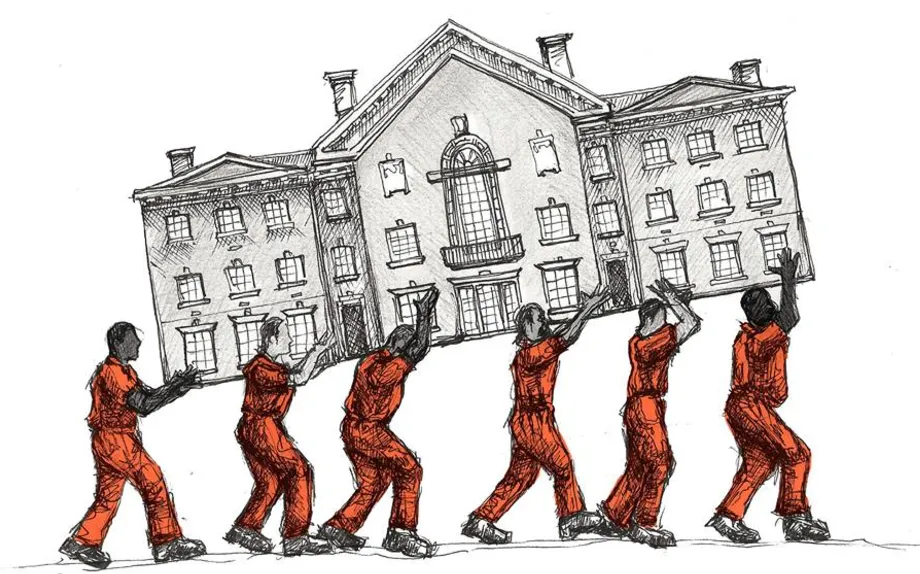
The prison system has seen some interest on Steemit, and I wanted to add the insights I've gained through my own research on the very clearly flawed prison system in the United States. The full details are incredibly extensive, so I will try to point out the primary flaws and some solutions I've seen proposed which could alleviate the prison problem in an easily readable way which introduces these concepts.
The Prison Industrial Complex
The primary reason for the flawed American prison system can be neatly placed into this word. The prison industrial complex refers to a massive conflict of interest within the US government and private prison owners to establish a system which focuses on incarceration rather than rehabilitation. The reason that this focus exists is because privately owned prisons exist which acquire profits when they have more prisoners.
This focus has an impact on every statistic available for US prisons, from prisoners who leave only to be re-incarcerated to laws which mandate hard minimum prison sentences for certain crimes. Profit motives have given prisons power to lobby in the government and make fair criminal justice reform harder.
Mental Health Illness and Exploitation
Prisons have a massive amount of inmates with mental health illness. Prisons are extremely poorly equipped to handle mentally ill inmate populations, with very few resources allocated to mental health facilities, psychologists, psychiatrists, and medicine. Because of this, people who would be mentally healthy with a proper diagnosis and prescription medication are brought to the brink of lunacy by being deprived of medicine and positive influences which incarceration robs them of having.
Mentally ill inmates have high rates of recidivism because of their mental incapacity without proper healthcare, which usually sees them breaking restrictions they have on parole or generally not functioning well when they return to society which may lead to another police call and re-arrest.
This is exacerbated by the lack of mental health facilities and the high amount of prisons. Because of the prison industrial complex, prison owners are incentivized to keep mentally ill inmates in prison rather than transferring them to mental health facilities. This creates a loop where prisons receive additional funding which is not received by mental health facilities, only increasing the resources of the prison industrial complex and reducing the ability for the true resolution through mental health facilities to have the resources to manage it.
Anthropology - Culture, Crime, and Education
While there is blame on the exploitation of the weak and the influence of the greedy, there is of course the regular criminal who chooses to do crime and is punished for it. While personal accountability and circumstances is the true root of why any person chooses to do something illegal, we can try to gain a broad understanding of the types of sub-cultures in the USA which are most affected by the prison industrial complex.
Communities which are impoverished, poorly managed, poorly educated, and violent of course breed the most criminals. Cultures which glorify crime, violence, lack of education, and do not encourage those to pursue legal means of personal development.
The true root of these issues is the fundamental lack of an education. Schools which do not take responsibility for their students, have a bad curriculum, and do not have enough funding for school activities, see communities which suffer for this lack of investment through children who grow up to become criminals.
When a school is not properly funded, the curriculum not engaging, and the students and parents not held accountable for truancy, children grow up and do not remain motivated to stay in school. When children are not in schools in bad neighborhoods, they do not engage with educators, parents, or other influences which help them engage in a positive life style. These children grow up more on the streets, then they see the gang members who they see as another family, the drug dealers who have a lot of money, and begin to glorify this behavior. Their influences become those which may have questionable decision making skills, rather than those who look out for their best interest such as their parents or educators.
When children and teenagers are not made to go to school or have no after school activities to attend to, they grow bored. Bored teenagers have a stereotypically poor sense of judgment when it comes to finding ways to alleviate boredom, which can cause crime and vandalism to develop in a neighborhood. It all comes down to having a properly funded school system which can properly accommodate students and provide a safe environment for them to spend time, learn from positive influences, and stay away from dangerous ones on the streets.
Possible Resolutions and Closing Thoughts
While my brief touch on this subject doesn't cover nearly enough detail to cover the massive scope of the issue, I feel that this is a great introduction to the primary issues and good resolutions to them. While the actual implementation of stronger education, mental health facilities, and the reduction of power of the prison industrial complex is a far greater task than simply saying what the resolution is, an understanding of the problem and resolution can help citizens engage with politicians and other decision makers about their stances and priorities to at least push us in the right direction.